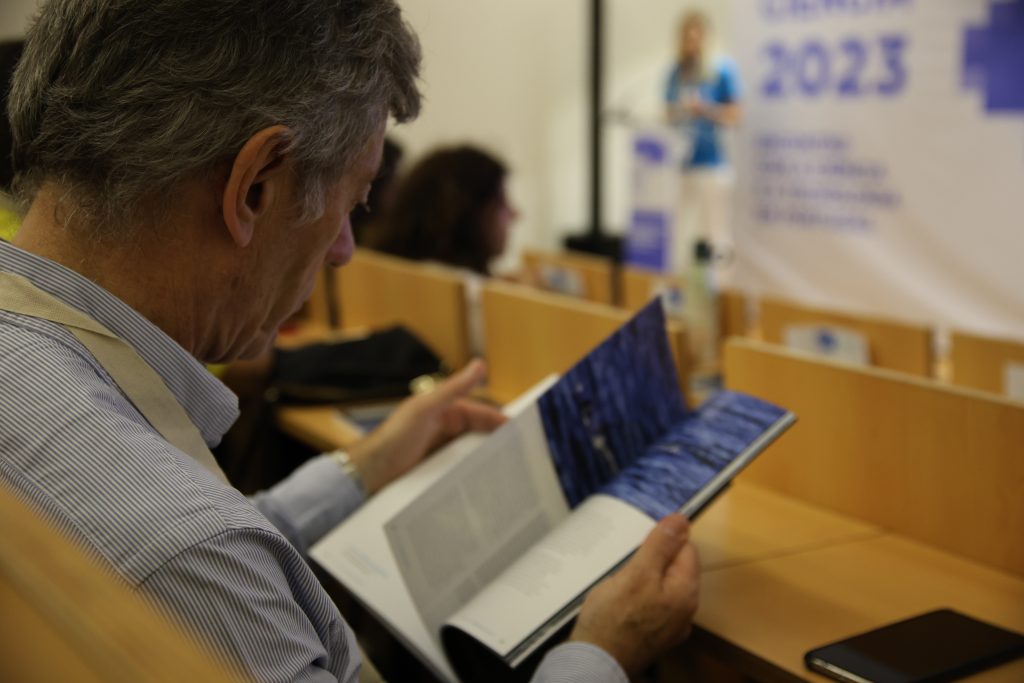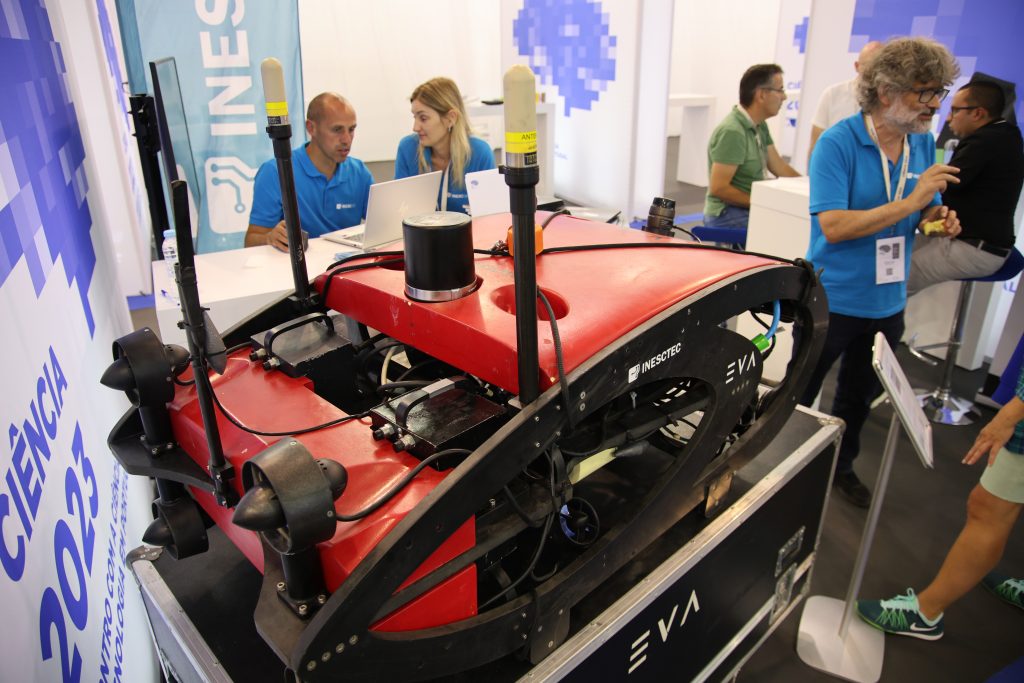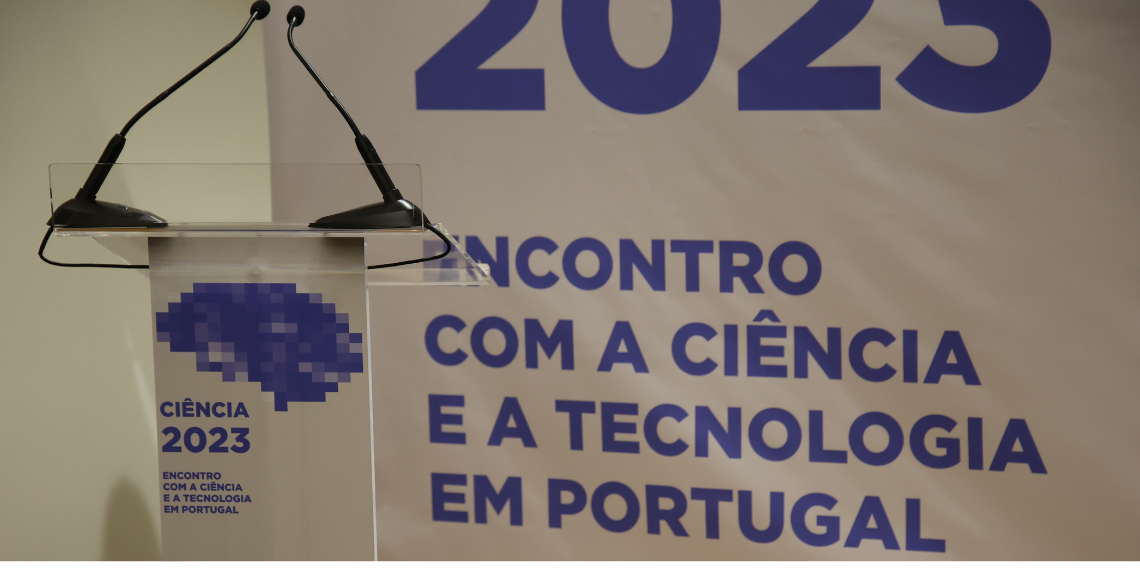The name is EVA: it’s an autonomous underwater vehicle, capable of navigating 1000 meters deep. It’s an underwater technology to map and inspect operations – and, for three days, it was part of the demonstration “Robots for monitoring vulnerable ecosystems on the seabed”, within the scope of Ciência 2023. Dedicated to the topic “Science and Ocean beyond the Horizon”, the event took place between July 5 and 7, at the University of Aveiro. INESC TEC attended the event, also promoting a thematic session on sustainable ocean exploration.
INESC TEC involved in the Thematic Sessions
“Science and Technology for Sustainable Ocean Exploration”. This was the motto of the session organised by INESC TEC (in partnership with CIIMAR/CIMAR LA) that took place on July 6. Aníbal Matos, member of the Board of Directors at INESC TEC, opened the session that featured some researchers from the Institute: Ana Paula Lima, who discussed The role played by INESC TEC and CIIMAR in the fight against climate change and the promotion of scientific and technological knowledge to support the blue economy (together with Ana Mucha, from CIIMAR), and Carlos Almeida, who addressed The success story of the Connect2Oceans project in tackling climate change, alongside Catarina Magalhães (CIIMAR).
In addition, the session also featured the launch of the sixth edition of INESC TEC Science & Society magazine, with Eduardo Silva, coordinator of INESC TEC TEC4SEA. It’s worth mentioning the participation of Luís Coelho, INESC TEC researcher, in the round table of the session “Jobs and Sustainable Circular Blue Economy”.

From the depths of the Ocean to Science
The EVA robot, entirely developed by INESC TEC, was part of the Ciência 2023 exhibition space for three days. The participants who visited the space “Robots for monitoring vulnerable ecosystems on the seabed” had the opportunity to know more about this autonomous underwater system, which combines high-accuracy position and navigation capabilities with a set of observation sensors and omnidirectional movement resources. These features are useful in terms of mapping applications, and during detailed inspection processes. Currently, EVA can operate up to seven hours and reach depths of more than 1000 meters.

The Encontro Ciência is the main science and technology event in the country; it’s promoted by the Foundation for Science and Technology (FCT), together with the National Agency for Scientific and Technological Culture – Ciência Viva – and, in 2023, with the University of Aveiro. This year’s edition featured six plenary sessions, 30 side sessions and more than 150 speakers, with Spain as the guest country at the event – which took place, for the first time, outside Lisbon.
The Ministry of Science, Technology and Higher Education, and the Committee on Education and Science were the institutional sponsors of the event.




 News, current topics, curiosities and so much more about INESC TEC and its community!
News, current topics, curiosities and so much more about INESC TEC and its community!